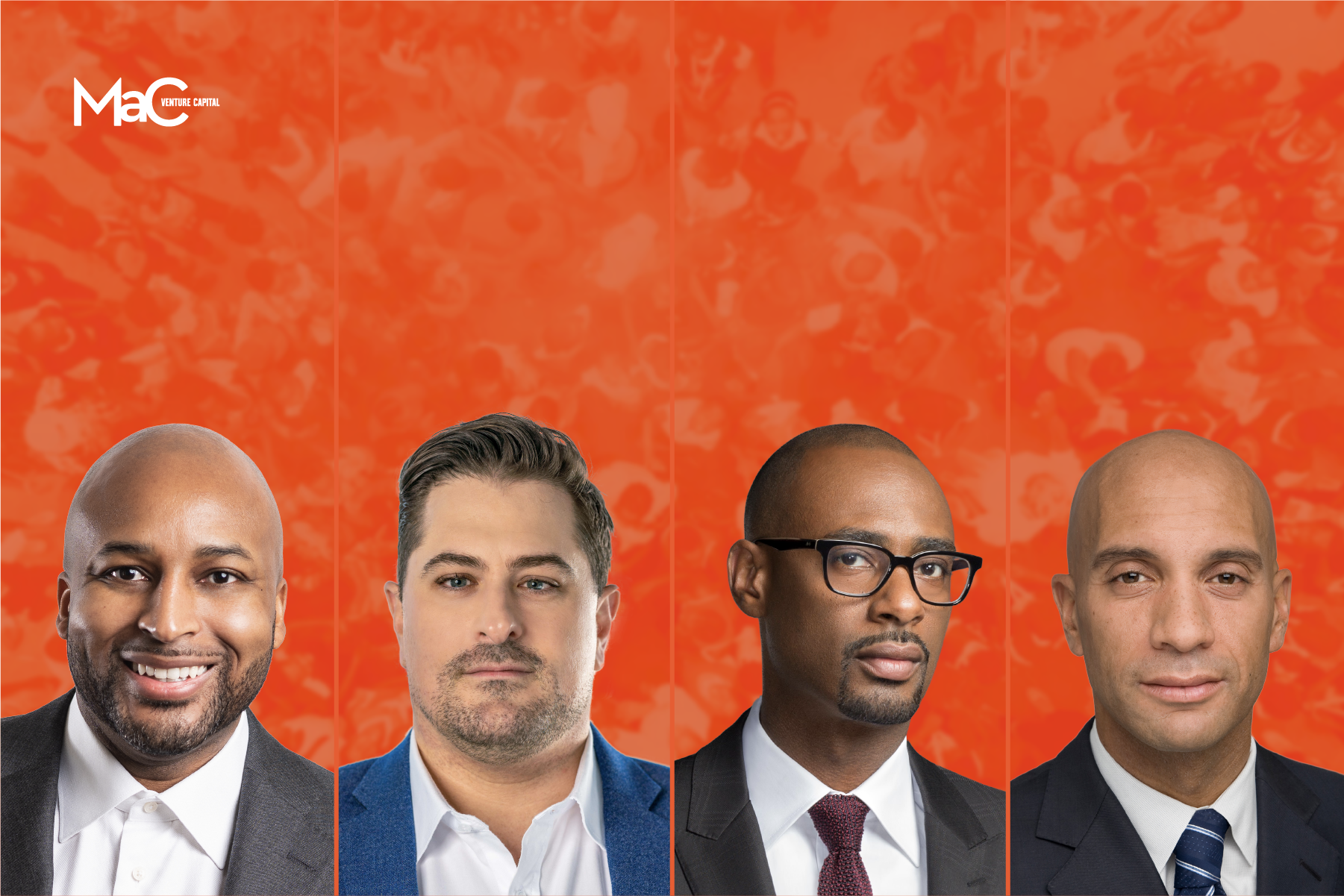The partners at MaC Venture Capital, the Los Angeles-based investment firm that has just closed on $103 million for its inaugural fund, have spent the bulk of their careers breaking barriers.
Formed when M Ventures (a firm founded by former Washington DC mayor Adrian Fenty); the first Black talent agency partner in the history of Hollywood, Charles D. King; and longtime operating executive (and former agent) Michael Palank joined forces with Marlon Nichols, a co-founder of the LA-based investment firm Cross Culture Capital, MaC Venture Capital wanted to be a different kind of fund.
The firm combines the focus on investing in software that Fenty had honed from his years spent as a special advisor to Andreessen Horowitz, where he spent five years before setting out to launch M Ventures; and Nichols’ thesis-driven approach to focusing on particular sectors that are being transformed by global cultural shifts wrought by changing consumer behavior and demographics.
“There’s a long history and a lot of relationships here,” said King, one of Hollywood’s premier power players and the founder of the global media company, Macro. “Adrian and I go back to 93 [when] we were in law school. We went on to conquer the world, where he went out to Washington DC and I became a senior partner at WME.”
Palank was connected to the team through King as well, since the two men worked together at William Morris before running business development for Will Smith and others.
“There was this idea of having connectivity between tech and innovation… that’s when we formed M Ventures [but] that understanding of media and culture… that focus… was complimentary with what Marlon was doing at Cross Culture,” King said.
Few firms could merge the cultural revolutions wrought by DJ Herc spinning records in the rec room of a Bronx apartment building and Sir Tim Berners Lee’s invention of the internet, but that’s exactly what MaC VC aims to do.
And while the firm’s founding partnership would prefer to focus on the financial achievements of their respective firms and the investments that now comprise the new portfolio of their combined efforts — it includes Stoke, Goodfair, Finesse, PureStream, and Sote — it’s hard to overstate the significance that a general partnership that includes three Black men have raised $103 million in an industry that’s been repeatedly called out for problems with diversity and inclusion.

MaC Venture Capital co-founders Marlon Nichols, Michael Palank, Charles King, and Adrian Fenty. Image Credit: MaC Venture Capital
“Our LPs invested in us… for lots of different reasons but at the top of the list was that we are a diverse team in so many ways. We’re going to show them a set of companies that they would not have seen from any [other] VC fund,” said Fenty. “We also, in turn, have the same investing thesis when we look at companies. We want to have women founders, African American founders, Latino founders… In our fund now we have some companies that are all women, all African American or all Latino.”
The diversity of the firm’s ethos is also reflected in the broad group of limited partners that have come on to bankroll its operations: it includes Goldman Sachs, the University of Michigan, Howard University, Mitch and Freada Kapor, Foot Locker, and Greenspring Associates.
“We are thrilled to join MaC Venture Capital in this key milestone toward building a new kind of venture capital firm that is anchored around a cultural investment thesis and supports transformative companies and dynamic founders,” said Daniel Feder, Managing Director with the University of Michigan Investment Office, in a statement. “Their unified understanding of technology, media, entertainment, and government, along with a successful track record of investing, give them deep insights into burgeoning shifts in culture and behavior.”
And it extends to the firm’s portfolio, a clutch of startup companies headquartered around the globe — from Seattle to Houston and Los Angeles to Nairobi.
“We look at all verticals. We’re very happy to be generalists,” said Fenty.
A laser focus on software-enabled businesses is complemented by the thesis-driven approach laid out in position papers staking out predictions for how the ubiquity of gaming; conscious consumerism; new parenting paradigms; and cultural and demographic shifts will transform the global economy.
Increasingly, that thesis also means moving into areas of frontier technologies that include the space industry, mixed reality and everything at the intersection of computing and the transformation of the physical world — drawn in part by the firm’s close connection to the diverse tech ecosystem that’s emerging in Los Angeles. “We’re seeing these SpaceX and Tesla mafias spin out, entrepreneurs who have had best-in-class training at an Elon Musk company,” said Palank. “It’s a great talent pool, and LA has more computer science students graduating every year than Northern California.”
With its current portfolio, though early, the venture firm is operating in the top 5% of funds — at least on paper — and its early investments are up 3 times what the firm invested, Nichols said.
“The way to think about it is MaC is essentially an extension of what we were building before,” the Cross Culture Ventures co-founder said. “We’re sticking with the concept that talent is ubiquitous but access to capital and opportunity is not. We want to be the source and access to capital for those founders.”



